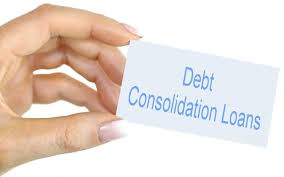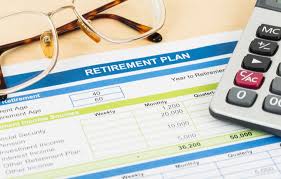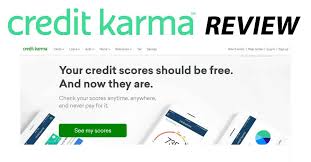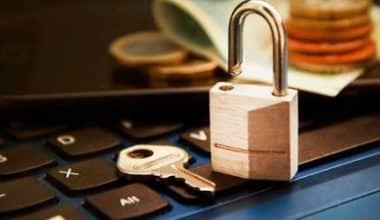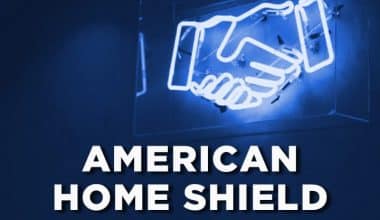If you’re managing numerous loans, it’s conceivable that you’re too preoccupied with making your minimum payments to consider how you’re paying off your debt fast. The duration of your debt load may increase as a result of this. This article explains how to pay off debt fast with a low income and without a loan. Read along to get more insight on how to pay off that debt faster!
How to Pay Off Debt Fast
Whether you want to apply for additional credit, reduce the cost of borrowing, or just reduce your debt, being ahead on your debt repayment may help you achieve your goals. Here are some ideas for repayment tactics that could assist you in paying off debt fast. Here are some ideas on how to pay off debt fast:
#1. Pay More Than the Minimum
Make it a habit to pay off your credit card, overdraft, or line of credit in full each month, and never just the minimum required amount. Paying down a credit card amount with simply the minimum payment required each month can take an extremely long time. This is due to the fact that the bulk of your minimum payment will be applied toward interest rather than the principle.
If you want to get rid of your debt quickly, you should make the maximum extra payment that you can manage. It will be beneficial to have even an additional $50 every month. Check your savings with a calculator to see how much you can get by doing this.
#2. Think About Using Savings to Clear Debt
It may be wise to use some of your savings to reduce your debt load if you have some spare cash. The interest you must pay on your credit card debt is typically larger than the amount you would make on a savings account. Consider utilizing funds to pay off debt if you have enough for a rainy day and don’t need it for anything else.
#3. Pay Off Your Most Expensive Debts First
Making the minimum payments on all of your loans and credit cards, with the exception of one, is one of the wisest ways to get out of debt. You should prioritize making extra payments toward the loan that is costing you the most interest. After paying off your first, most expensive loan, put all of the money you were spending on it toward your next-most expensive bill. Keep doing this as you pay off each loan, and eventually, you’ll be left with the cheapest bill to tackle first. You will quickly become debt-free with this method, and as you observe your development, you will be motivated.
#4. Look at the Interest Rate, Not the Balance
You can find yourself holding on to debt for a longer period of time if you pay off your debt in proportion to the balance due and ignore the interest rate. If you have several debts to pay off, think about paying off the ones with the highest interest rates first after you have made all of your minimum payments because interest on even a minor debt may add up very rapidly.
#5. Decide on a Debt Repayment Strategy
Consider a debt repayment strategy and set up a plan to pay off your debts more quickly. Paying off debts with the highest interest rates first makes the most financial sense. However, some find renewed vigor in their repayment efforts when they focus on their smaller obligations. Some people find it more manageable to get a debt consolidation loan and pay off all of their debts at once.
#6. Track Your Spending and Identify Areas to Cut Back
This can help some people save almost as much money as if they were working a part-time job. If you don’t attempt this, you’ll never know how much you can save. Keep tabs on your expenditures for a month, and don’t compare them to your ideal budget. It won’t work if you won’t be honest with yourself during this activity, although most individuals are shocked by the information they learn about their spending. The more you understand your spending patterns, the easier it will be to spot places where you might make reductions.
How to Pay Off Debt Fast with a Low Income
It takes effort, regardless of income, to eliminate debt. Getting out of debt while staying within a budget may require more preparation, but it is not insurmountable. You can eliminate debt faster than you think if you just make a plan and stick to it.
Here are some ideas on how to pay off debt fast with a low income:
#1. Keep Track of Your Debts
Knowing how much debt you have is the first step toward eliminating it. Gather your most recent bank and credit card statements, as well as your credit report and credit scores. See if there are any mistakes on your record of debt by consulting your credit report. A lower interest rate or consolidation loan can be possible, depending on your credit score.
#2. Stop Acquiring New Debts
This may be challenging if your monthly spending exceeds your income, but if you’re already having trouble making ends meet, it’s crucial to avoid taking on further debt. Putting essential purchases on a credit card or taking out a personal loan you can’t afford to pay back will only make it more challenging to get out of debt in the future.
Payday loans and other forms of high-interest credit should be avoided at all costs, despite the fact that they may seem like a good idea at the time. Borrowers with low incomes may be tempted by the lack of a credit check associated with payday loans; nonetheless, these loans are notoriously difficult to repay due to their high-interest rates and short terms (usually two to four weeks).
#3. Create a Budget
Create a budget after compiling your debts to see how much of your income goes toward paying them and how much is left over for other necessities. You have the option of using a budgeting tool or creating your own spreadsheet to track your finances. It is one of the best ideas for how to pay off debt fast with a low income.
#4. Prioritize High-Interest Debts
You’ll need a new strategy as your focus shifts to larger balances. Focus on the highest-interest obligations first, rather than the lowest ones. The term “debt avalanche method” describes this situation.
#5. Consider a Refinancing
Consider refinancing your loans as another option for paying off debt on a tight budget. To refinance means to transfer the debt balance to a new lender. After that, they may present you with an alternative loan with more favorable terms. Loans for both vehicles and homes can be refinanced.
Refinancing will, at the very least, allow you to reduce your overall loan balance. You have the option of modifying your repayment schedule, interest rate, and monthly payment.
#6. Try to Bargain Lower Interest Rates with Your Creditors
It may be possible to reduce the interest rate on your debt if it is causing you financial hardship. Make some phone calls and see if you can get a better interest rate by talking to your creditors. If you have a history of timely payments, you will have a better chance of receiving a favorable response. When making your request, you might emphasize how well-maintained your account has been. You can save money and even reduce your debt more rapidly if your interest rates are reduced.
How to Pay Off Debt Fast without a Loan
Getting to know how to pay off debt fast without a loan is very important, so as to know what to avoid and things to do. Here are some ideas on how to pay off debt fast without a loan:
#1. Try to Find Any Way to Earn More Money
Finding creative ways to earn more money can help you put more money toward your debts and have them paid off faster. Investigate options for legal extra income. Freelancing is one option, but it can be time-consuming and may not pay as much as the others. It is possible to fuel the paydown by locating additional funds. And you’re thinking about paying down some or all of your debt with the money you received as a tax refund or a bonus from your employer.
#2. Pay Off Higher Debts with Your Savings
Don’t be reluctant to put your savings toward your obligations with the highest interest rates. It’s wise to put extra money toward paying down debt so that you can avoid paying interest on a huge load. While it’s nice to know you have some savings stashed away, you shouldn’t expect those funds to do much for you at today’s record-low interest rates. Don’t spend all the money that you’ve saved. Also, don’t just let your bills pile up if you have a surplus of cash.
#3. Get Comfortable with a Reliable Technique for Payoff
Debt repayment requires both a financial and mental investment. You need a strategy for paying off your debts that is convenient for you, just as you need the resources to make those payments.
The debt snowball strategy could be useful if you’re the type of person who needs to see early progress in order to maintain motivation. With this strategy, you pay off your smallest debt first (while still meeting the minimum payments on your other obligations). When one debt is paid off, the funds earmarked for that payment are reallocated to the payment of the next largest debt, and so on.
#4. Sell Items for Cash
Make a plan to sell your unwanted stuff online or in a garage sale. You can quickly reduce your debt load by selling unwanted or unused possessions to raise more funds for debt repayment.
#5. Consider Cashing In Your Life Insurance
If you have a substantial amount of debt and want to pay it off soon, you may want to consider cashing in your life insurance. It may make sense to use your life insurance proceeds to pay off debt if you feel as though you are drowning in debt and don’t have any dependents or spouses who would need to receive a payout from the policy.
However, you can’t use this tactic if you have term life insurance. Cash-value whole-life plans are required for this to work. It’s also worth noting that if you have beneficiaries, you may be able to withdraw some of the cash value from your whole life policy to pay down your debts while still leaving a portion of the earnings to your loved ones.
Mistakes to Avoid When Paying Off Debt
You need to know things to avoid while paying off your debt. The following are some mistakes to avoid when paying off debt:
#1. Trying to Dig Out of Debt Alone
It’s not only possible but also relatively simple. You just need a little assistance, but admitting that you need it implies that you already have a problem. That’s not something everyone wants their loved ones to know about them.
#2. Taking Part in a Questionable Plan to Reduce Debt
Financial difficulties can be overcome with the help of debt reduction programs. Digging is hard work, so keep that in mind. A program that is too simple to be successful is likely to be exactly that.
#3. Failing to Make a Workable Budget
To use an extreme analogy, overcoming debt is like fighting a war. You will likely be forced to surrender if you try to wing it.
#4. Trying to Consolidate Debts into One Manageable Payment
Mortgages, car payments, and utility bills all have monthly payment schedules. Then there are the bills, like credit card payments, that can be made in installments. Monthly attempts to deal with all of those are common. That was a bad decision.
#5. Neglecting to Pay Your Bills on Time
Average Americans can’t just keep accruing debt as though it won’t ever catch up to them, unlike the federal government. If you ignore your growing debt, it will only get worse as a result of interest rates.
How Can I Pay Off My Debt Without a Personal Loan?
The following are ways to pay off your debt without a personal loan:
- Debt snowball and debt avalanche.
- Balance transfer credit cards.
- Loan consolidation.
- Home equity agreements.
How Can I Settle My Debt by Myself?
The following are ways to settle your debt by yourself:
- Assess your situation.
- Research your creditors.
- Start a settlement fund.
- Make a debt settlement offer to the creditor.
- Review a written debt settlement agreement.
- Pay the agreed-upon settlement amount.
Final Thoughts
You’ll be able to pay off your debt fast if you deal with it as soon as possible. There’s no use in procrastinating any longer; the next few years will pass whether or not you pay it off. You have nothing to lose by giving this a shot. Talking to a credit counselor should be your first step if you are drowning in debt and have been unable to make any progress toward paying it down on your own. Investigate the debt relief options in your area.
A reliable credit counselor will lay out all of your choices and assist you in making the one that is best for you. Most people are glad they took the time to learn about the debt repayment plans offered by non-profit credit counseling groups before it was too late. Talking to a credit counselor at a non-profit organization is free of charge, does not affect your credit score, and does not include any form of judgment.
Related Articles
- HOW TO PAY OFF CREDIT CARD DEBT 2023 (Updated)
- Important Things to Know before Refinancing Credit Card Debts (Refinansiering Av Kredittkort)
- HOW DO PERSONAL LOANS WORK? Step-By-Step Guide
- SAVINGS ACCOUNT: Definition and How to Open One
- PAYROLL RELIEF REVIEWS 2023
- Term Loans: Everything You Should Know!!!


